
1. FC Kattowitz was an ethnically German football club playing in what was Kattowitz, Silesia Province in Germany and was active during the inter-war period and World War II when the two countries struggled over control of the region. Established in 1905, the original club disappeared in 1945; a modern-day Polish club using the name 1. FC Katowice was formed in 2007.
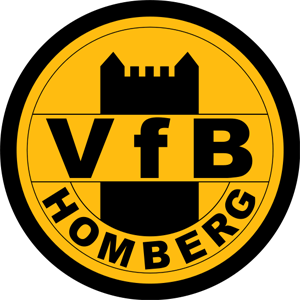
The VfB Homberg is a German association football club from the Homberg quarter of Duisburg, North Rhine-Westphalia. The club was formed July 1969 through the merger of Homberger Spielverein and Sportvereinigung 89/19 Hochheide.
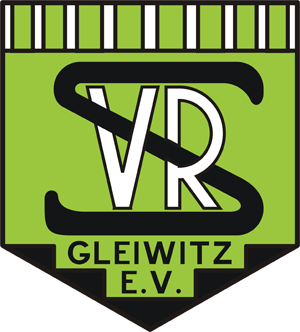
Vorwärts-Rasensport Gleiwitz was a German association football club from the city of Gleiwitz, Upper Silesia, today Gliwice, Poland.
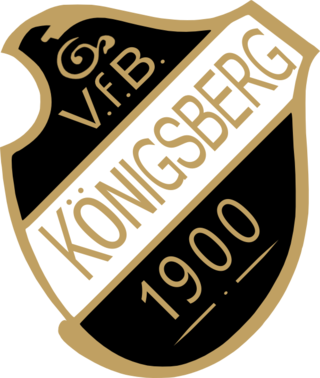
VfB Königsberg was a German association football club from the city of Königsberg, East Prussia. The team played its home games at the Sportplatz des Vereins für Bewegungs Spiele near the Maraunenhof Stadtgärtnerei, aside from 1940 to 1941 when they played at the Sportplatz am Friedländer Tor between Haberberg and Rosenau.

Yorck Boyen Insterburg was a German association football club from the city of Insterburg, East Prussia.

SV Prussia-Samland Königsberg was a German association football club from the city of Königsberg, East Prussia.

SV Hindenburg Allenstein was a German football club from the city of Allenstein, East Prussia.

Stettiner SC was a German association football club from the city of Stettin, Pomerania.

Viktoria Stolp was a German association football club formed in 1909, from the city of Stolp, Pomerania which was at the time part of Germany and is today Słupsk, Poland.

VfL Benrath is a German association football club from the southern city district of Benrath in Düsseldorf, North Rhine-Westphalia.

Westende Hamborn is a German association football club from the district of Hamborn in Duisburg, North Rhine-Westphalia, a mining and steelworking region. The history of the club includes a number of worker's sports and football clubs.
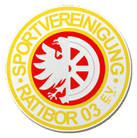
SV Ratibor was a German association football club from the city of Ratibor, Upper Silesia. It was the first football club established in Upper Silesia and remained active until 1945.
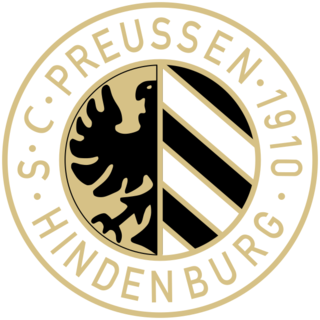
Preußen Hindenburg was a German association football club from the city of Zaborze, Upper Silesia in Germany.

VfB Offenbach is a German association football club from the city of Offenbach am Main, Hesse. Currently playing in the Kreisliga A (IX), the team was a second division side during World War II and appeared for a single season (1943–44) in the Gauliga Hessen-Nassau (I).
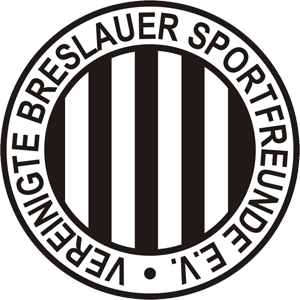
Vereinigte Breslauer Sportfreunde was a German association football club from what was at the time the city of Breslau, Lower Silesia in Germany and is today Wroclaw, Poland. The club was established in 1919 through the merger of predecessor sides SC Preußen Breslau and Verein Breslauer Sportfreunde. They dominated play in the regional Südostdeutschland league in the period immediately following World War I.
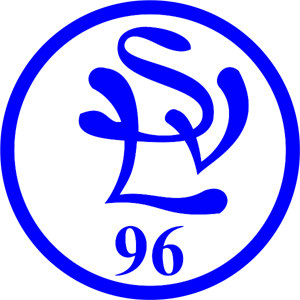
ATV Liegnitz was a German association football club from what was then the city of Liegnitz, Lower Silesia in Germany, but is today Legnica, Poland. The origins of the club were in the establishment of the gymnastics club Alter Turnverein Liegnitz in 1852, which formed a football department in July 1896.
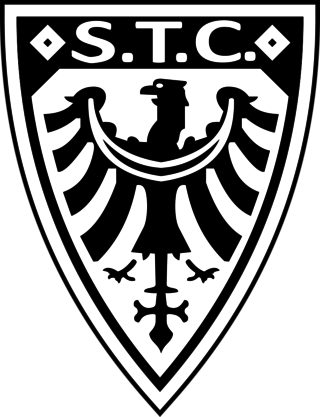
STC Görlitz was a German association football club from the city of Görlitz, Silesia. The club was established as Sportclub Preußen Görlitz in 1906.

Breslauer SC was a German association football club from the city of Breslau, Lower Silesia. The club enjoyed its greatest successes in the late 1920s.
1. FC Breslau was a German association football club from the city of Breslau, Lower Silesia. It was established by the former membership of SV Stern Breslau, a workers' club that had been banned by the Nazis in 1933 alongside other left-leaning and faith-based clubs. Stern was notable as the losing side in the 1924 title match of the Arbeiter-Turn- und Sportbund,, a leftist national sports organization which organized a football competition and championship separate from that of the DFB.
Polizei SV Berlin was a German football club from the city of Berlin. The early 1920s saw the formation of sports clubs for police and postal workers which included the establishment on 1 June 1921 of Sport-Verein Schutzpolizei Berlin as the club of the city's police force. It was renamed Polizei SV Berlin in 1922 and advanced to play first-division football in the Oberliga Berlin for a single season in 1926–27. They returned to Oberliga play in 1929 for a three-year turn that ended after a 9th-place finish in 1932. In 1930, the club took part in the Berliner Landespokal and went out 1–2 to Minerva Berlin in a quarterfinal match.


















